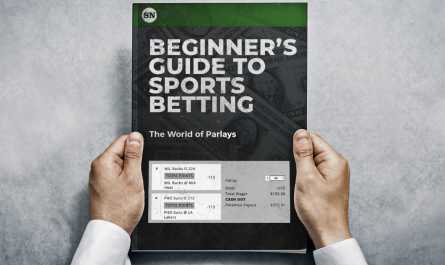A betting exchange is a marketplace that enables gamblers to compete against one another at prices that are less expensive than those provided by a conventional sportsbook.
Two clients place a wager against one another after deciding on the odds and stake for a particular game.
A customer on the exchange may accept my $50 wager on Packers -3 versus the Cowboys and wager Cowboys +3 in my place.
Since betting exchanges don’t require large oddsmaking teams, they have little overhead and may charge significantly lower fees on bets than traditional sportsbooks, which often take 5–10%.
You may really acquire NFL point spreads closer to -101 or even money on an exchange rather than betting them at -110.
A more user-friendly experience is also promised by several exchanges that employ straightforward percentages rather than American odds.
Yet since they won’t be constrained, exchanges appeal to high-stakes, professional gamblers. No matter how skilled a bettor is, the exchange doesn’t care since it generates money by collecting a percentage of trades, not by outperforming its clients.
Why Didn’t the United States Have Betting Exchanges?
Beginning with the 2022 NFL season, Prophet and Sporttrade made their debut in New Jersey. They want to swiftly expand to other states the following year. They think that by offering a smaller vig than DraftKings or FanDuel, they may attract clients without using as much conventional advertising.
Yet, liquidity has always been a hurdle to entry for an exchange in the United States. According to the Federal Wire Act of 1961, which prohibits the transmission of gambling information over state boundaries, exchange operators are restricted to operating separate exchanges in each particular state.
The pool of users and funds would be too narrow if all bets placed on a New Jersey betting market could only be made against residents of that state. Customers in New Jersey and Pennsylvania couldn’t bet against one another even if an exchange operated in those states.
It indicates that there would not be sufficient funds in the pot to enable an exchange, or at least that is the imagined difficulty. It’s conceivable that new exchanges will have to utilize their own funds to inject liquidity into the markets so that customers’ wagers can be matched.
The Wire Act, which restricts the size and liquidity of betting pools, is the largest barrier to the establishment of an exchange in the United States, according to Mark Miscavage, an executive at the London-based betting exchange Smarkets, who spoke to Casino.org.
The ability to pool liquidity, in this scenario, across all the states, he added, would be “the largest challenge for us.” “I don’t sure if there is one state that is nearly big enough to supply the volume and liquidity needed to run an efficient exchange solely for one state,” the author says.
The Silence of the Elephant
There are now a number of American sports betting exchanges (which run in the majority of states), but they operate in a very hazy legal space, which is the proverbial elephant in the room.
They assert that they may do business in any state because they are not sportsbooks.
- Bro Throw: An application that links gamblers and forces them to make payments to one another via a third-party service like Venmo.
- Bet Openly: A peer-to-peer trade that is popular on TikTok, Bet Openly claims to function similarly to how Uber did in the beginning, when taxi firms sought to stifle it.
- Another peer-to-peer exchange that operates in 45 states is called Bettor Edge.
Are the Exchanges Effective?
Prophet and Sporttrade will be two of the first to truly try, and when it enters New Jersey and aims to expand swiftly in 2023, we’ll learn a lot about the potential.
Exchanges are expected to gain popularity among more devoted, price-conscious bettors for liquid markets like NFL point spreads, but conventional bookies will triumph among bettors who don’t care about pricing by dominating props, futures, and liquid markets.
Smarkets is launching a conventional sports betting solution on the US market. FanDuel is owned by the parent firm of Betfair, the biggest exchange in the world.
But, there are two significant obstacles: the Wire Act and existing casino lobby groups that oppose it since it would drive away clients from their conventional sportsbooks.
The Wire Act would need to be overturned in order to establish a viable, profitable betting exchange, which appears unlikely to happen anytime soon.
Benefits of Sportsbook Exchanges
Reduced costs. Peer-to-peer betting means there are no sportsbooks to take their significant commissions. As the winning bettor, you will pay a few pennies per dollar as opposed to 10 cents. Exchanges are highly accommodating to customers.
Every market is two-sided. Most sportsbooks frequently only give one side of a wager. There must be someone willing to accept -700 if you want to wager on the Chiefs to win the Super Bowl at +700 on an exchange. As a result, you have the choice to accept “yes” or “no” for the majority of bet types.




